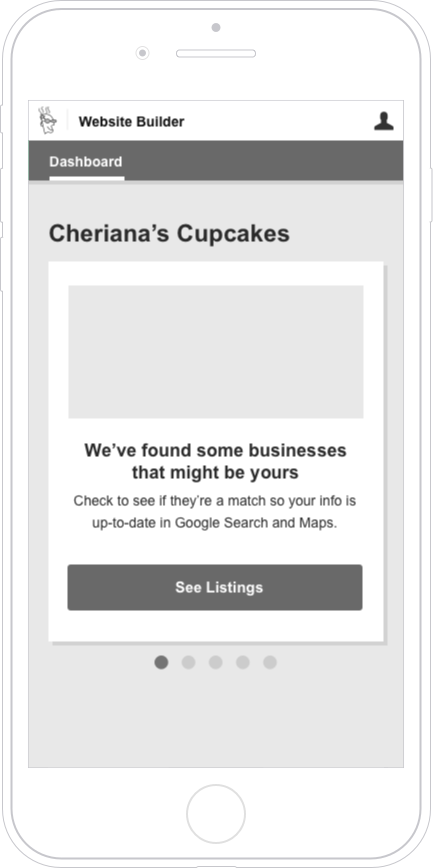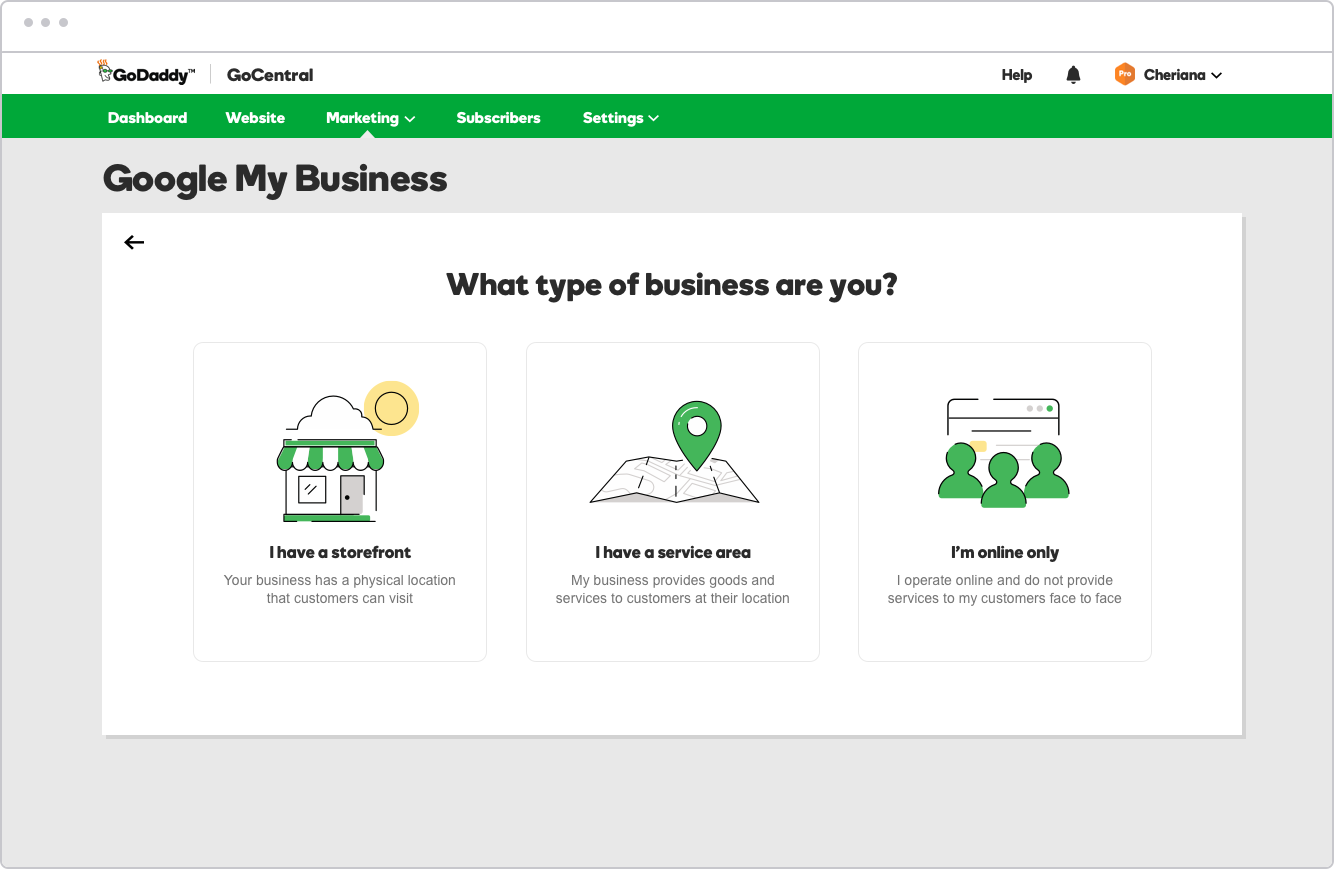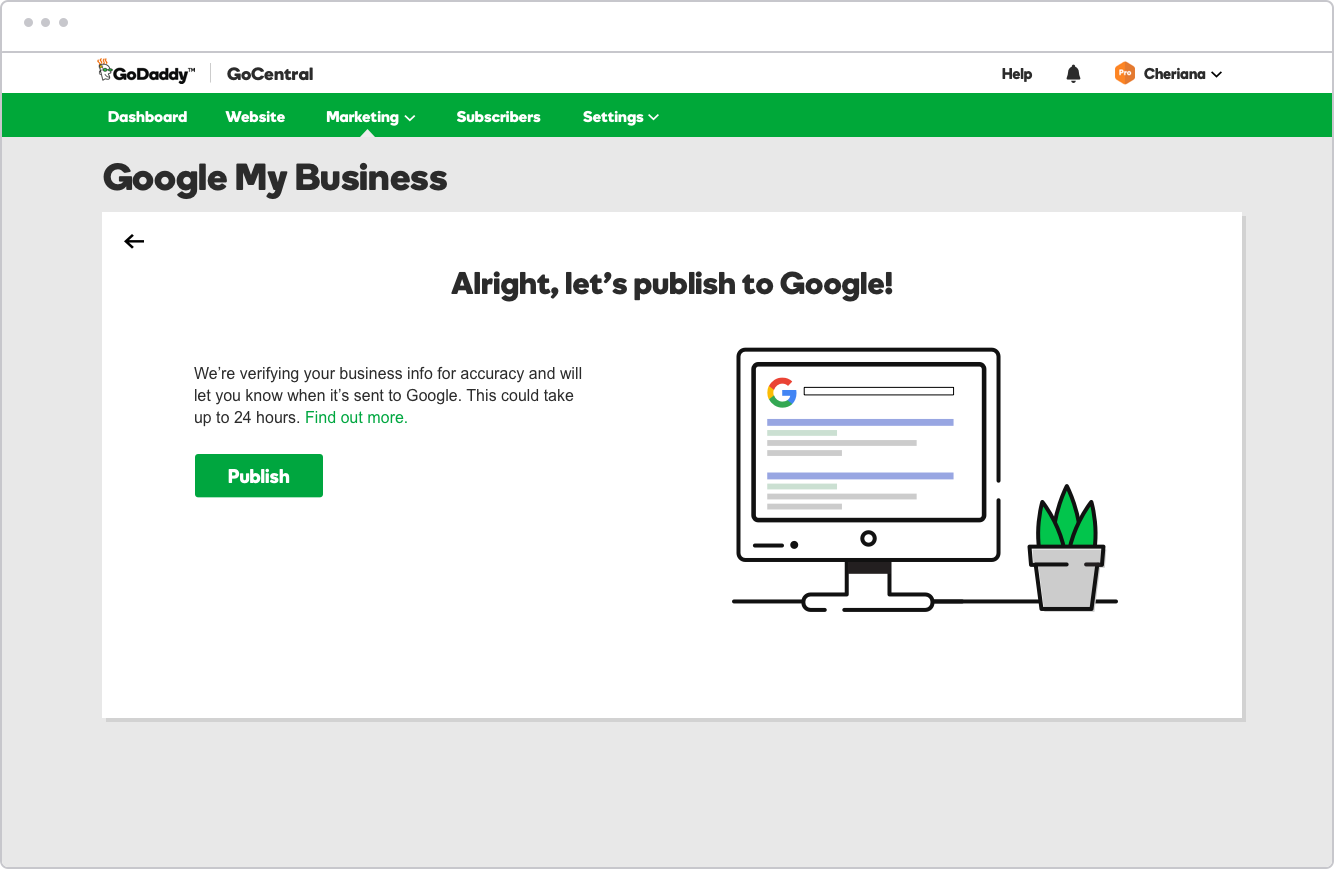Google My Business
GoCentral + Google My Business
Enabling GoCentral users to quickly list their business and gain visibility in Google Search and Maps
̌
Problem
How can we make it easy for users to become aware of Google My Business and create a listing without leaving GoCentral?
OVERVIEW
As the sole UX Designer for this feature, I was tasked with creating a replacement for the Google My Business listing service found in GoDaddy's GetFound. Get Found provides a platform for listing on multiple local business listing sites but will soon be phased out in favor of a more robust set of marketing tools included in the GoCentral suite. Our goal is to empower small business owners to build, manage and maintain their online presence in the easiest way possible and Google My Business (or GMB as we call it) is an excellent tool for increasing local visibility in Google Search and Maps.
PRocess
I started by researching the core product itself: how did Google My Business handle the listing creation process? How long did it take and what was the experience like? Next, I dove into GetFound and examined the differences.
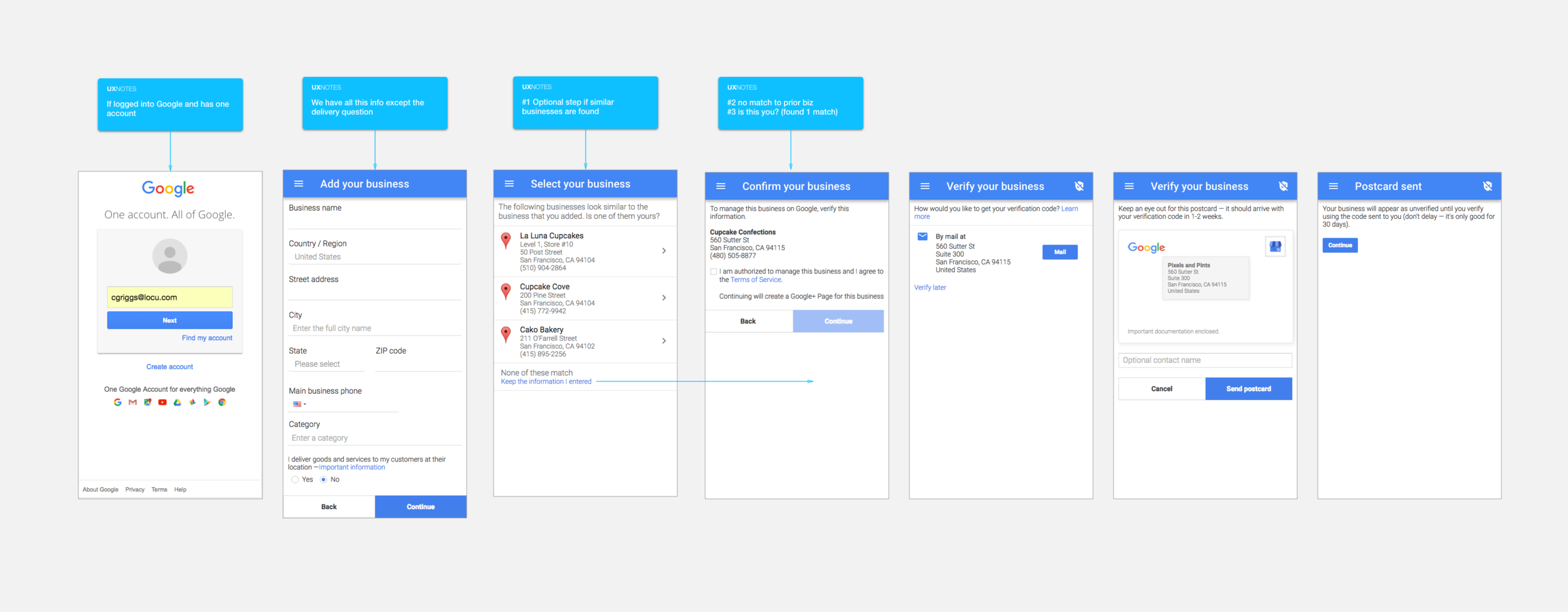
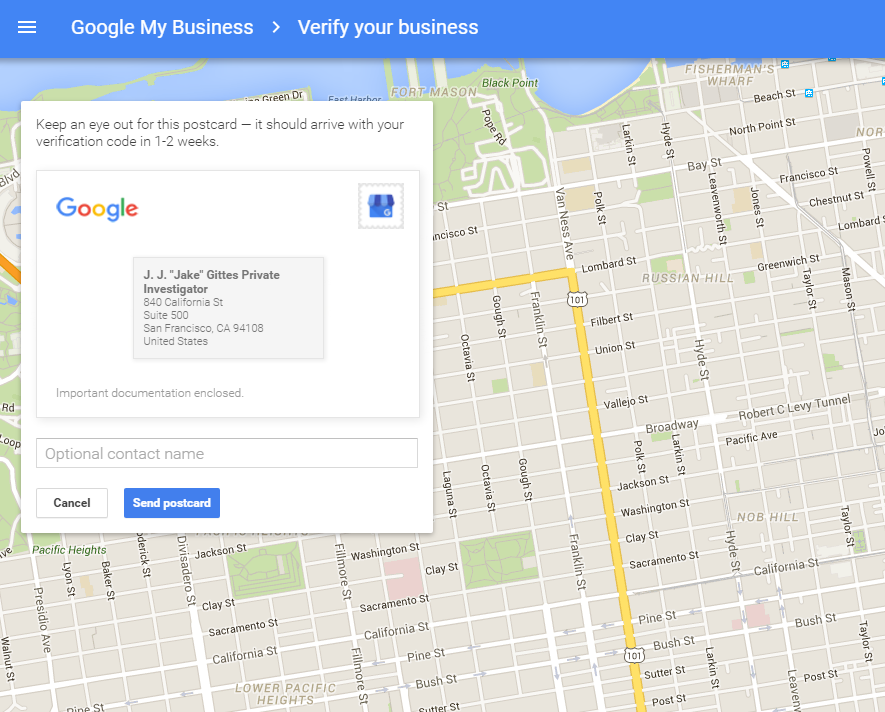
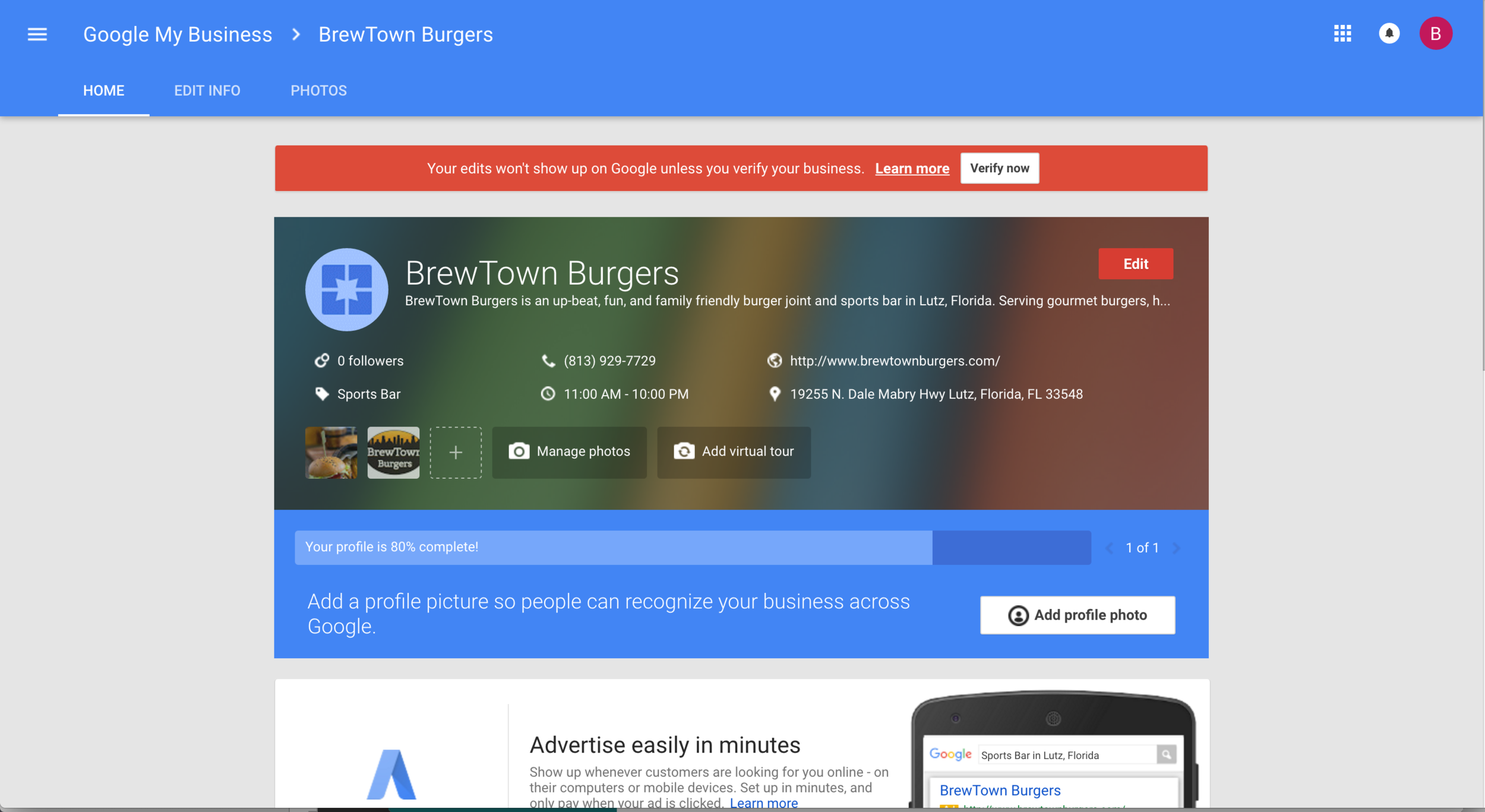
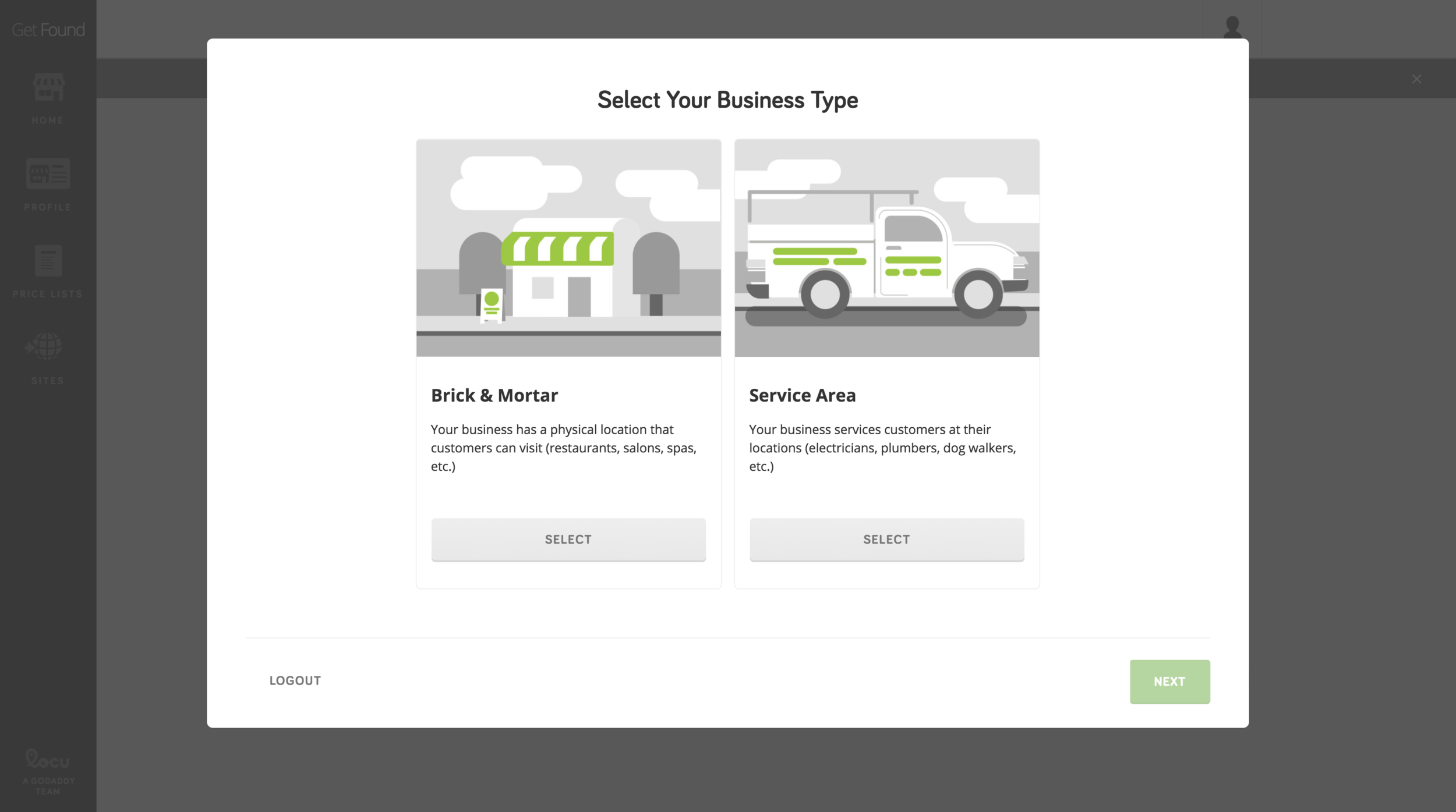
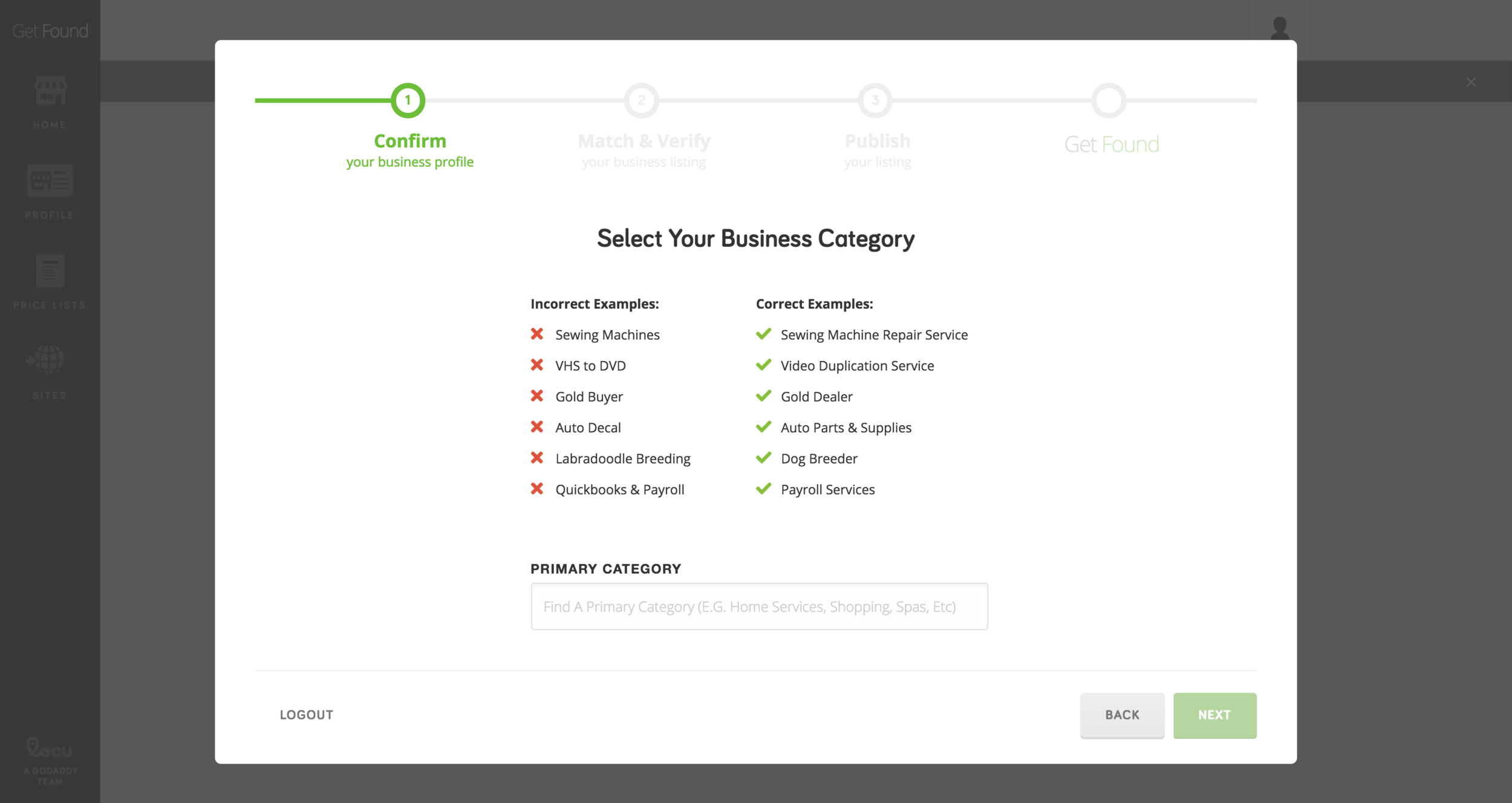
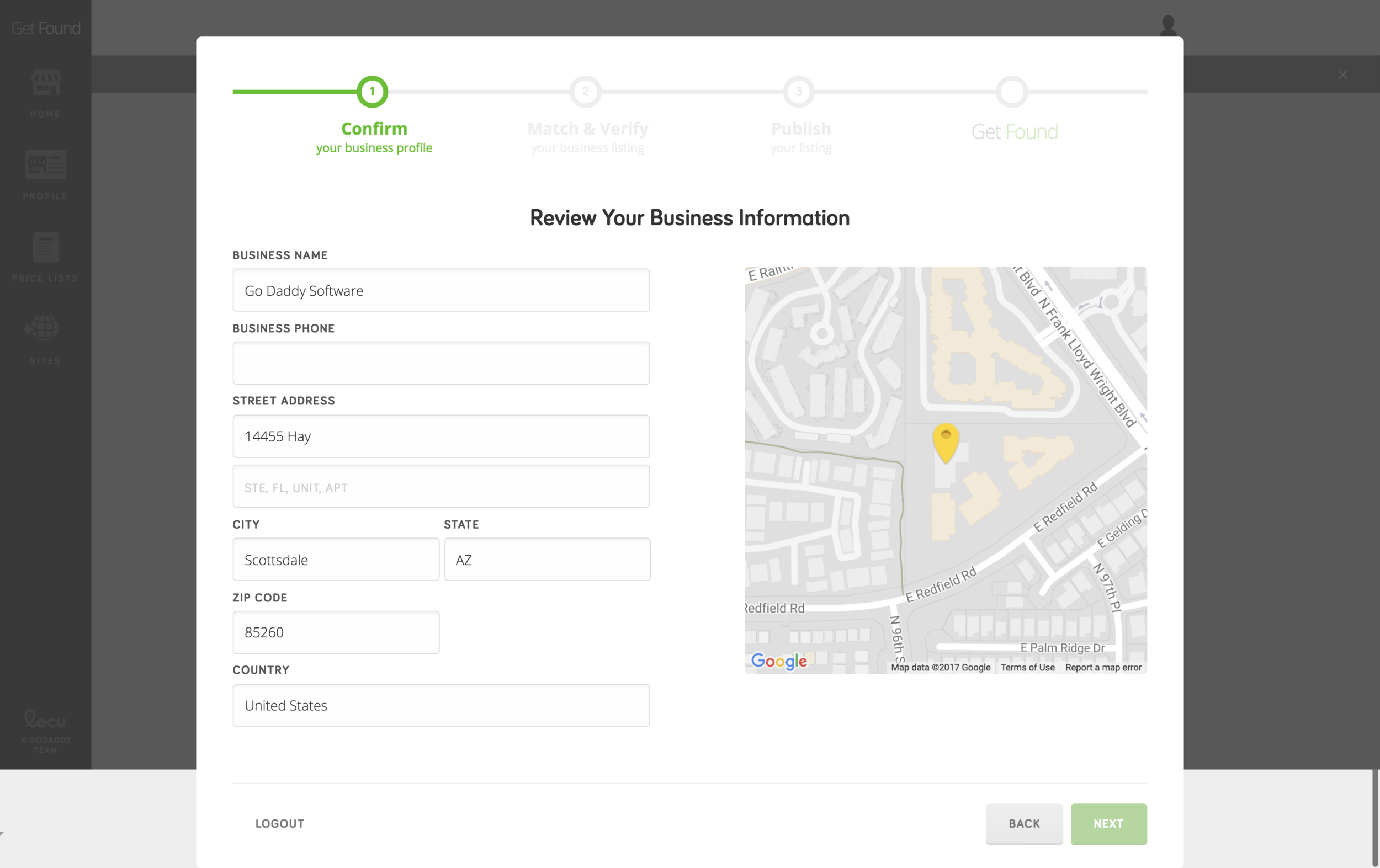
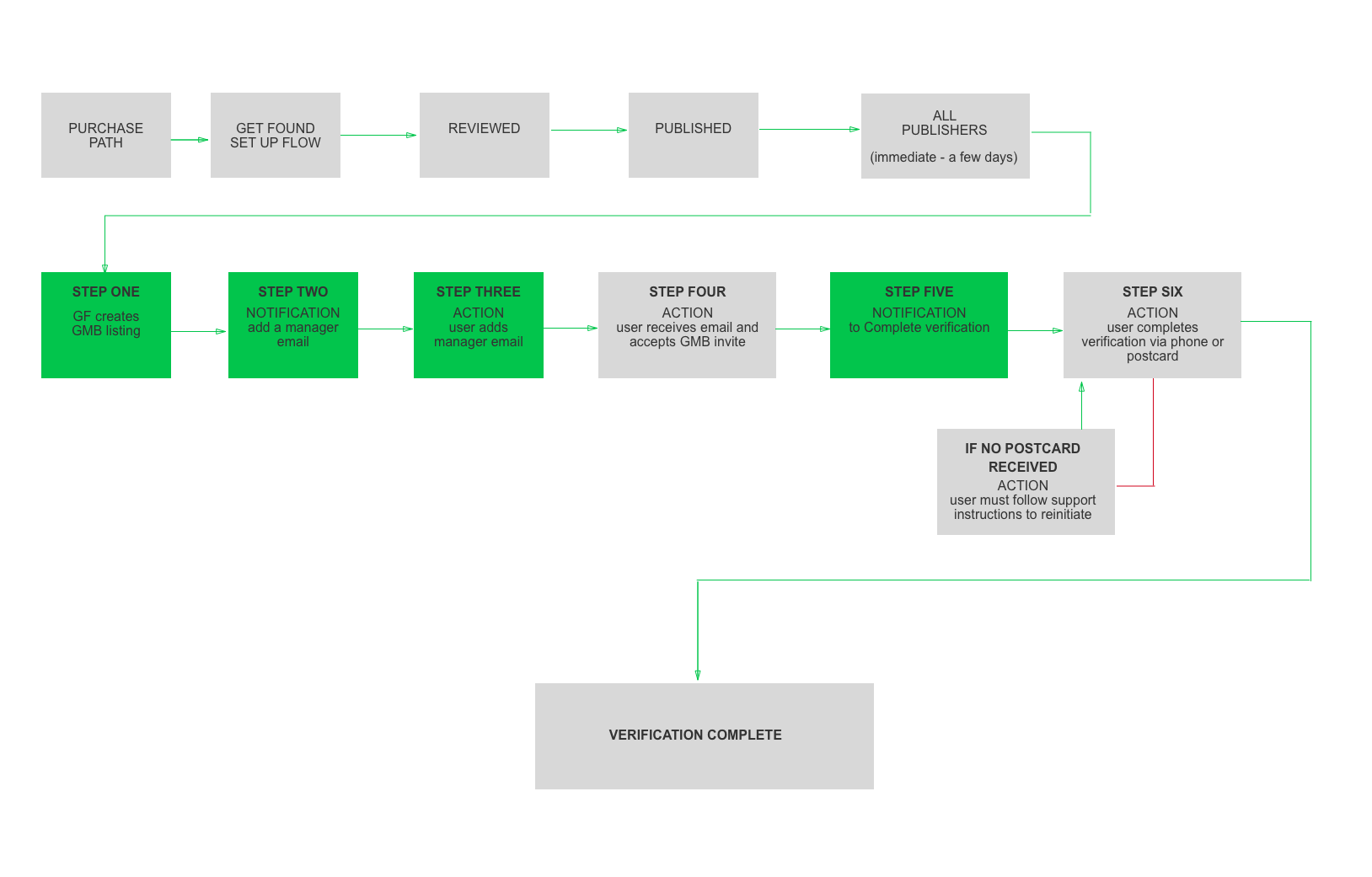
Here's what I found:
- Brick and mortar or service area: the types of businesses that could be considered for a GMB listing.
- Up to 1-2 weeks: how long the Google My Business verification process by mail could take. That's a long time for small businesses struggling to compete.
- 85%: the GetFound onboarding completion rate. Users were successfully getting into the product and publishing listings but there was still room for improvement.
- 1 minute: the amount of time it takes to verify your business by phone in GetFound and GMB. If users skipped this step because they weren't at their business, their listing might not go live.
Now that I had a clear understanding of existing products and constraints, I teamed up with my Product Manager and Engineering Lead to brainstorm a new flow that would live within GoCentral.
Some questions we needed answers to were:
- Who were the GoCentral users and did they differ from Google My Business and GetFound users?
- Where were they coming from prior to discovering this feature?
- What were the technical constraints we were dealing with?
- What are some areas of improvement from the previous GetFound feature?
Initial user flow for integrating Google My Business into GoCentral
Sketch showing an idea for capturing service area information that aligns with an existing pattern in GoCentral
GetFound is sold separately from any website our customers purchased which leads to a disjointed experience visually and functionally jumping from app to app. I explored different areas within GoCentral to expose Google My Business and, after much consideration of traffic data and flows, landed on presenting a card on the dashboard which users saw post-publishing their GoCentral site.
The process of scanning Google Places for matches to the business could return no matches, one match, or multiple matches so different flows and states of the card on the dashboard were developed.
Card to show when no matches were found
Card to show when one match was found
Card to show when multiple matches were found
An early verification on Google flow
If we found a correct listing match on Google Places and the GoCentral user wished to claim it, we needed them to grant us permission to manage their listing.
Unclaimed listing flow and management permissions
A lot of user testing was conducted to validate our hypotheses, including:
- Users would be able to successfully differentiate between the GMB card and the SEO card on the dashboard
- Users would not be confused by the business types presented
- Users would feel comfortable publishing their business listing to Google and would know what we were publishing
This screen was tested to see if users could differentiate between the Google My Business and SEO cards
The business type selection screen was tested to validate our hypothesis that users would feel confident in selecting the appropriate type for their business
The publish to Google screen user testing provided valuable insights that changed our flow
What we uncovered were valuable insights that changed the flow. The biggest takeaway from user testing was that even though a preview of the listing was presented on the dashboard in the first step, users did not feel comfortable publishing the listing to Google on the last step without a final preview. This, along with strict data quality verification requirements led to the addition of a business information review step.
Business type selection screen for mobile
Service area and storefront businesses are asked to review their info prior to publishing to Google for data quality
Businesses that aren't local don't qualify for Google My Business so we redirected their focus to their organic SEO instead
Solution
With GoCentral, we brought awareness of Google My Business to our users and decreased the amount of time it took to get listed from 1-2 weeks down to 12-50 hours. That’s huge for our users!
We’re also sending their logo, website, and hours automatically to their Google My Business listing so they don’t have to worry about adding this at a later date. This is beneficial for our users as more complete listings with up-to-date information help improve their local ranking on Google.
Takeaways
GoCentral’s Google My Business Listing creation tool has only been out for a short time but our customers are already seeing results.
In the first three months of rolling this feature out to a small percent of GoCentral users:
1,538 listings were created
1 million+ views of those listings occurred
7,000 phone calls were made to those businesses
17,000 clicks to their websites happened
11,000 directions to their storefronts were asked for
...and we’re just getting started. The pattern created in this feature is applicable to many other online networks such as Yelp and TripAdvisor.
You can see this feature live on GoDaddy's GoCentral Business Plus and Online Store plans after publishing. Check out the press release for more info.





